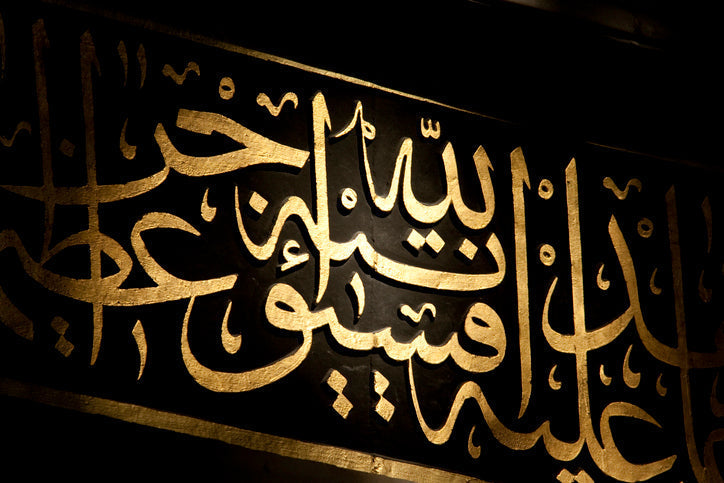Key Takeaways
- Sacred Month Status: Muharram is one of four sacred months designated by Allah where righteous deeds are multiplied in reward and spiritual reflection is emphasized.
- Ashura's Blessing: Fasting on the 10th of Muharram expiates sins from the past year, as taught by Prophet Muhammad ﷺ, while commemorating Allah's saving of Prophet Musa from Pharaoh.
- Spiritual Renewal Opportunity: The Islamic New Year through Muharram invites Muslims to set intentions grounded in taqwa and embrace practices of reflection, fasting, and prayer.
Muharram – A Sacred Start to the Islamic New Year
As the Islamic calendar resets with the arrival of Muharram, Muslims around the world are given the gift of new beginnings. Muharram is not just the first month of the Hijri year — it is one of the four sacred months in Islam, full of reflection, remembrance, and renewal of faith.
Let's take a moment to understand the blessings of this sacred month and how we can embrace it spiritually.
A Sacred Month Chosen by Allah
Allah ﷻ says in the Quran:
"Indeed, the number of months with Allah is twelve… of them four are sacred…" (Surah At-Tawbah 9:36)
Muharram is among these four sacred months. The name "Muharram" itself means "forbidden" — highlighting its status as a time when sinful actions are even more serious, and righteous deeds are multiplied in reward.
This divine designation creates unique opportunities for spiritual growth that Muslim families can experience through increased worship and meaningful Islamic practices during this blessed period.
The Significance of Ashura (10th Muharram)
The highlight of Muharram is the Day of Ashura, the 10th day of the month.
The Prophet ﷺ fasted on this day and said:
"Fasting on the day of Ashura expiates the sins of the past year." (Sahih Muslim)
This day also commemorates the miraculous saving of Prophet Musa عليه السلام and the Children of Israel from Pharaoh, which is why the Prophet ﷺ fasted in gratitude and encouraged his followers to do the same.
Many Muslim families find that preparing for Ashura with meaningful practices—such as organizing family prayers or reading the story of Prophet Musa together—enhances their spiritual connection to this blessed day.
Fasting in Muharram
The Prophet ﷺ said:
"The best fasting after Ramadan is in the month of Allah, Muharram." (Sahih Muslim)
While fasting on the Day of Ashura is highly recommended, many scholars encourage fasting the 9th and 10th, or the 10th and 11th, to distinguish from other traditions and to increase reward.
This scholarly guidance reflects Islam's emphasis on following authentic practices while maintaining distinct Muslim identity—principles that guide Islamic education and spiritual development.
Lessons from Karbala
Muharram is also a time of deep reflection and remembrance of the tragic events of Karbala, where the beloved grandson of the Prophet ﷺ, Imam Hussain رضي الله عنه, stood for justice and truth in the face of oppression. His sacrifice teaches us about integrity, courage, and standing up for what is right — even when it is difficult.
These timeless lessons resonate particularly with Southeast Asian Muslim communities navigating modern challenges while maintaining Islamic values and principles in diverse societies.
A Time for New Intentions
Just like the Gregorian New Year brings resolutions, the Islamic New Year through Muharram invites us to set intentions grounded in taqwa (God-consciousness).
Ask yourself:
- What habits do I want to improve?
- How can I grow spiritually this year?
- What can I do to bring more barakah into my home and family?
Many families find that establishing meaningful Islamic traditions during Muharram, such as regular family Quran reading or organized charitable giving, creates lasting spiritual foundations for the entire year.
Start the Year With Allah
Muharram is not a time for fireworks and parties — it's a time for reflection, fasting, and prayer. As we enter a new Islamic year, may our hearts turn toward Allah with renewed sincerity.
Let's begin this year with faith, humility, and gratitude.
Practical Applications
For Working Professionals: Begin Muharram by setting a simple spiritual routine—reading a few verses from the Quran before work or making dhikr during commutes. Use Ashura as an opportunity to take time off for fasting and reflection, demonstrating to colleagues the importance of Islamic observances while maintaining professional responsibilities.
For Families: Create Muharram traditions that teach children about Islamic values. Prepare special meals during Ashura while sharing stories of Prophet Musa's courage and Imam Hussain's sacrifice. Involve children in charitable activities that embody the month's lessons about justice and helping others.
For Students: Balance academic demands with spiritual growth by incorporating brief prayers into study schedules and participating in Islamic society Muharram programs. Use the month as motivation to develop better character traits like patience and diligence that benefit both spiritual and academic success.
Frequently Asked Questions
Q: Why is Muharram considered more sacred than other Islamic months?
A: Muharram is one of four sacred months specifically designated by Allah in the Quran (Surah At-Tawbah 9:36). During these months, good deeds receive multiplied rewards while sins carry greater weight, making them particularly powerful times for spiritual renewal and seeking divine forgiveness.
Q: What is the best way to observe Ashura?
A: The most recommended practice is fasting on the 10th of Muharram, preferably combined with the 9th or 11th day. Additionally, engage in increased prayer, Quran recitation, charity, and reflection on the historical significance of Prophet Musa's deliverance and Imam Hussain's sacrifice.
Q: Can children participate in Muharram observances?
A: Yes, children can participate through age-appropriate activities like listening to Islamic stories, helping prepare charitable contributions, joining family prayers, and learning about Islamic values through Muharram's historical lessons. The key is making participation joyful and educational rather than burdensome.
Q: How does Muharram relate to contemporary Muslim life?
A: Muharram provides structured opportunities for Muslims to renew their spiritual commitments while addressing modern challenges. The month's emphasis on justice, patience, and standing for truth offers practical guidance for navigating contemporary ethical dilemmas while maintaining Islamic principles.
Q: What should Muslims avoid during Muharram?
A: While maintaining normal daily activities, Muslims should be especially mindful of avoiding sins, excessive worldly distractions, and behaviors that contradict the month's spiritual focus. Instead, increase good deeds, charitable acts, and spiritual practices that align with Muharram's sacred nature.
About the Author
This article was written by Sheela M. Ahmed, founder and owner of AlHiqma, blending traditional Islamic teachings with contemporary Muslim experiences. Since establishing AlHiqma in 2018, she has been dedicated to helping Muslim families strengthen their connection to faith through authentic Islamic lifestyle education grounded in values from the Quran and real-life applications.
Begin your Islamic New Year with meaningful spiritual practices. Explore AlHiqma's Islamic Lifestyle Collection to support your family's Muharram observances with authentic resources designed for contemporary Muslim homes.
We want to hear from you! How will you be observing Muharram this year? What are your spiritual intentions for the new Hijri year? Share your Muharram experiences, family traditions, and spiritual goals with our AlHiqma community through our social media platforms. Your stories inspire and encourage fellow Muslims on their spiritual journeys—let's grow together in faith this sacred month!












